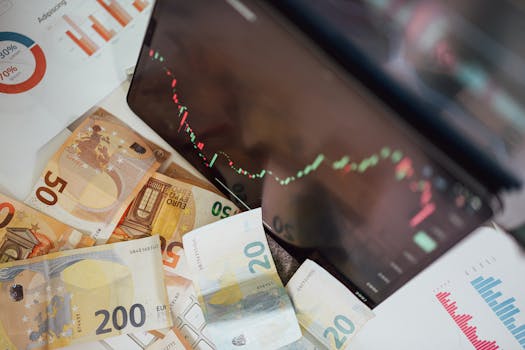+17162654855
+17162654855
DMV Publication News serves as an authoritative platform for delivering the latest industry updates, research insights, and significant developments across various sectors. Our news articles provide a comprehensive view of market trends, key findings, and groundbreaking initiatives, ensuring businesses and professionals stay ahead in a competitive landscape.
The News section on DMV Publication News highlights major industry events such as product launches, market expansions, mergers and acquisitions, financial reports, and strategic collaborations. This dedicated space allows businesses to gain valuable insights into evolving market dynamics, empowering them to make informed decisions.
At DMV Publication News, we cover a diverse range of industries, including Healthcare, Automotive, Utilities, Materials, Chemicals, Energy, Telecommunications, Technology, Financials, and Consumer Goods. Our mission is to ensure that professionals across these sectors have access to high-quality, data-driven news that shapes their industry’s future.
By featuring key industry updates and expert insights, DMV Publication News enhances brand visibility, credibility, and engagement for businesses worldwide. Whether it's the latest technological breakthrough or emerging market opportunities, our platform serves as a bridge between industry leaders, stakeholders, and decision-makers.
Stay informed with DMV Publication News – your trusted source for impactful industry news.
Consumer Discretionary

**
The recent episode of "The Economics Show" featuring a fiery exchange between renowned financial columnist Martin Wolf and Nobel laureate Paul Krugman has ignited a crucial conversation: the erosion of trust in institutions and its devastating economic consequences. The debate, centered around the escalating global crises – from inflation and debt to geopolitical instability – highlighted fundamental disagreements on the root causes and potential solutions, captivating audiences and sparking widespread discussion on social media and across financial news outlets. This article delves into the key takeaways from this compelling intellectual showdown, examining the arguments put forward and their implications for the future of the global economy.
The central theme of the Wolf-Krugman exchange revolved around the rapidly diminishing public trust in various institutions. Both economists agreed on the severity of the problem, but their diagnoses and prescriptions differed significantly. Krugman emphasized the role of political polarization and the spread of misinformation as key drivers of this crisis. He argued that the deliberate undermining of established institutions by populist movements and the proliferation of fake news on social media have severely damaged public faith in expertise and objective truth. This, he contended, leads to poor policy decisions and economic instability.
Krugman pointed to several examples where the erosion of trust has hampered effective governance. The hesitancy to adopt evidence-based public health measures during the COVID-19 pandemic, the resistance to climate change action, and the rise of anti-vaccine sentiment were all cited as manifestations of this broader crisis. He argued that restoring trust requires a concerted effort to combat misinformation, promote media literacy, and strengthen democratic institutions. This includes holding social media companies accountable for the spread of false narratives and investing in quality journalism and education.
Wolf, while acknowledging the importance of combating misinformation, placed greater emphasis on the role of systemic failures and rising economic inequality in fueling public distrust. He argued that decades of neoliberal policies, characterized by deregulation, financialization, and austerity measures, have created a system where the benefits of economic growth are disproportionately concentrated among a small elite, leaving large segments of the population feeling left behind and disenfranchised. This, he posited, has led to a profound loss of faith in the fairness and legitimacy of the existing economic and political order.
Wolf’s analysis pointed towards the widening wealth gap as a primary catalyst for the crisis of trust. He argued that the perception of unfairness and the lack of economic mobility have fueled resentment and a sense of betrayal, making people susceptible to populist narratives that promise radical change. He suggested that addressing this underlying inequality is crucial for restoring trust, advocating for policies that promote fairer income distribution, greater social mobility, and a more inclusive economic system.
Both economists agreed that the crisis of trust has profound economic consequences. The uncertainty and instability it generates hinder investment, stifle economic growth, and contribute to volatile markets. The current global stagflationary environment, characterized by high inflation and slow growth, was cited as a direct consequence of this widespread distrust. Furthermore, the erosion of international cooperation and the rise of geopolitical tensions – including the war in Ukraine – were also linked to the underlying decline in global trust.
The debate highlighted the interconnectedness of economic and political factors. The decline in trust not only undermines domestic stability but also weakens international cooperation, making it more difficult to address shared challenges like climate change, pandemics, and global financial instability. The lack of trust in international institutions and agreements exacerbates these risks, potentially leading to further economic hardship and conflict.
While their approaches differed, both Krugman and Wolf recognized the urgency of addressing the crisis of trust. The conversation ended not with a definitive resolution but with a shared sense of concern and a call for a multi-pronged approach. This involves not only combating misinformation but also tackling the underlying economic inequalities that fuel resentment and distrust. The path forward necessitates a combination of political reforms, economic policies that promote fairness and inclusion, and a renewed commitment to democratic principles and transparency.
Restoring public trust is a long-term project requiring a collaborative effort involving governments, businesses, media outlets, and civil society organizations. It demands a fundamental shift in how institutions operate, prioritizing transparency, accountability, and responsiveness to the needs and concerns of ordinary citizens. Without addressing this crisis of trust, the global economy faces a future fraught with instability and uncertainty. The "Economics Show" debate served as a crucial wake-up call, reminding us of the vital role that trust plays in maintaining a healthy and prosperous world. The ongoing conversation, sparked by this exchange, is a vital step towards finding solutions to this critical challenge facing our globalized world.